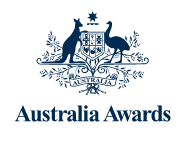Weather
Australia is in the southern hemisphere so the seasons are opposite to those in Vietnam. This means that Christmas (December) in Australia is in summer when it’s hot, and winter starts in the middle of the year from June. From November to May, monsoonal rains pour down on northern Australia, such as in Townsville which is home to James Cook University, and temperatures soar into the high 30s. In contrast, students at the Australian National University in Canberra have hot dry summers and cold winters with temperatures sometimes below 10 degrees Celsius during the day.
Language
English is the official language of Australia, although many other languages are commonly spoken, especially among the diverse international student cohorts you will meet.
Australians often use unique terms, or slang, which you may find hard to understand. This includes words that are new or unusual, or abbreviations. Australians have a habit of shortening words, or making them less formal, especially people’s names. This is an indication of acceptance and friendship. You may benefit from access to an Australian slang dictionary, either purchasing or online.
Customs
Australian culture is generally informal. People usually call acquaintances by their first names. However, formal titles such Mr, Mrs, Miss, Ms, Doctor and Professor are often used when addressing someone unfamiliar or older than you for the first time, especially in an academic context.
Dress codes vary widely in Australia. Many workplaces and venues have formal standards, while at other times, many Australians wear clothes which you may think immodest, especially in summer or at the beach. Don’t be surprised. You’re not expected to conform. As a multicultural community, you will find many people of different backgrounds dressing according to their cultural requirements or perspectives.
Most university students wear casual clothing. However, it’s common to see international students in traditional dress among those in jeans and t-shirts. Australia Awards Scholars often wear national dress to formal events, so it’s a good idea to bring at least one set of your formal, traditional, religious or customary dress.
As easy-going as Australians are, there are some customs that you should be aware of, such as arriving on time and not spitting. Many are set out in the Department of Home Affairs Life in Australia booklet.
Banking
Your first priority on arrival should be to open an Australian bank account so we can deposit your establishment allowance and your contribution to living expenses payments. Your institution will help you do this.
Bank opening hours vary, but are usually 9am to 5pm. Some open later or close earlier, and some branches are open on Saturdays.
To open an account, you will need photographic identification, such as your passport or drivers license. Once your account is set-up, you can register for internet banking and withdraw cash from automatic teller machines (referred to as ATMs) 24 hours a day, as well as from many stores.
In Australia, debit or credit cards are most commonly used instead of cash in stores. This system is called EFTPOS (electronic funds transfers at the point of sale).
Transport
Public transport varies widely between Australian cities.
Student concession cards provide you with discounted travel on buses, trains, ferries and trams in some, but not all states. You must carry your student identity card at all times when using a concession card. If a transport official asks for your identity card and you don’t have it, you can receive an on-the-spot fine. Your Student Contact Officer will be able to advise you about any applicable student concessions for public transport.
Buses, trains and trams operate according to timetables. Public transport authorities generally have maps available of their routes and the times they operate on their websites. You must catch buses and trams from designated stops.
Researching public transport routes will help you decide where to look for long-term accommodation.
Cycling is popular among students, and most cities have good cycle networks. You are legally required to wear a helmet when riding a bicycle or motorcycle. Keep your bicycle locked when you’re not riding it. Your institution may have a secure place to store bikes.
Some students buy used cars, especially if they are living in a regional area or their accommodation is a long way from the institution. While running a car can be expensive, taxis are also very expensive in Australia, especially in rural towns.
Communication
Australia has good mobile phone coverage and fast internet services in cities where you will be studying. There is a range of commercial internet providers and many of these offer discounts for long-term contracts. It is important to read through all options and ensure you are comfortable with the cost and benefits of the package offered. Most universities and colleges also provide limited internet usage from the university’s computer labs, as well as free wireless internet connection on-campus.
You should consider bringing your Vietnamese mobile phone with you and buying a new SIM card on arrival. International phone calls can be very expensive, so look carefully at options for deals on phone cards for international calls.
Pre-paid and post-paid deals for mobile phones are available. Pre-paid means you pay in advance for the service. Post-paid plans are contracts which may be long term, lasting 24 month, or short term, lasting 30 days. Be cautious about signing a long-term contract, as you may be surprised at the size of your monthly bills.
Visit the Australian Mobile Telecommunications Association for more information.
If you don’t already have a computer, consider buying or renting a laptop or desktop computer in Australia so it will be covered by warranty.
Electrical outlets in Australia supply electricity at 220-240 volts. If you plan to travel with electrical appliances and a charger for your phone or laptop, you will need to bring or purchase an adapter for Australia.
Work
You and any dependent family members traveling with you are allowed to work and do not need to apply separately for a work permit. You can work up to 40 hours per fortnight while your course is in session. Work that is part of your course is not counted. There is no limit to the hours you can work during session breaks. However, you are encouraged not to work during term as it could disrupt your studies.
For Masters and PhD students, your dependents can work unlimited hours after the date that your course begins.
If you choose to work, there are many options. Some Australia Awards scholars get work on campus as tutors. Others work off- campus, for example in the service industry. Work is generally part-time and is unlikely to be similar to your work in Vietnam, as few scholars meet Australian requirements for certain professions, such as medicine and teaching. The different types of work available varies greatly between regions.
Jobs are advertised in newspapers and on the internet, and most institutions have employment and career services that can help you find part-time work, write resumes and perform well in interviews.
If your course lasts for more than six months, you are considered to be an Australian resident for tax purposes. If you work, you should get a tax file number from the Australian Tax Office and you will be required to lodge a tax return at the end of the financial year (30 June). Any income tax deductions made by your employer will be returned to you if you have earned less than the minimum threshold in one year.
Sites that list job opportunities include:



